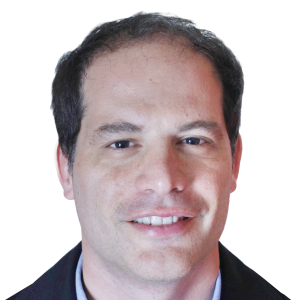Simon Kuper on how to raise a winning child


Roula Khalaf, Editor of the FT, selects her favourite stories in this weekly newsletter.
When Kate Middleton first holds her baby, she may feel what most new parents feel: “This child has unlimited potential. It can be anything it wants.”
But the feeling deceives. In fact, a person’s fate is already largely decided before birth. If the mother ate badly during pregnancy, or drank or smoked a lot, the kid probably won’t make the executive suite. More still is decided before age three. By then, the average American child of college-educated parents knows about 1,200 words, according to Harvard’s Center on the Developing Child. The average child of parents on welfare knows 400. The gap rarely closes after that. Life is unfair from the start.
Happily, though, something can be done. Wonks worldwide are getting excited about something called “early childhood development”. It’s a rare thrilling new idea that appeals to both right and left. It’s a set of policies that can give a Pakistani peasant baby an only somewhat worse start in life than Britain’s future monarch. (Declaration of interest: I’ve become so enthused about early childhood development that I’ve helped promote it as a sub-board member of George Soros’s Open Society Foundations.)
A lot of these policies aim at teaching parents. The primary influence on a child’s life is parenting, concluded the US’s National Institute of Child Health and Human Development in a mega-study in 2006. Parenting probably outweighs genes, money and school – and it may matter most before the child turns three.
The middle classes sense this. That’s why they treat pregnancy and child rearing as independent research projects. They read parenting books, do pregnancy yoga, and quarrel on chat sites about whether eating sushi harms the foetus. Middle-class parents like me can be found, exhausted, at half past bedtime, reading the evening’s third story about some godforsaken rabbit who won’t go to sleep, because we’re trying to shape our children’s brains.
Some poor parents do this. I knew a black maid in apartheid South Africa who raised her grandchildren almost single-handed, five hours from her employers’ house, and got them reading books. Several graduated from university.
However, few poor people study parenting in the obsessive middle-class way. Anyway, they usually lack time and resources. Raising children even in a two-parent middle-class family is exhausting. If I were a poor single parent of toddlers who woke me at 5am, I’d stick the TV on for hours.
Early-childhood advocates aim to help parents like these. Almost all parents want the best for their children; for instance, in a large survey by London University’s Institute of Education, 97 per cent of British mothers of children born from 2000 through 2002 said they wanted their child to go to university. Yet many have no idea how to do it. There are a few simple things new parents could be told: speak to your child a lot. Read to it, sing to it, sit on the floor when you play with it, feed it healthy stuff. Don’t smack it, because violence shapes the young child’s brain. Not all parents know these things, which is why some British kids start school unable to say “cat”. This advice could be delivered through health services, which typically deal with new mothers anyway.
And society can make bigger interventions: for instance, ensuring that mother and baby eat properly. That will develop the child’s brain, allowing him to learn at school, argues Bill Gates. Society can also send kids to preschool – not in order to study flashcards, but to learn life skills like concentration and dealing with others. James Heckman, the Nobel-winning Chicago economist, says these skills will help the child learn, and tend to translate into everything from larger incomes to avoiding jail.
…
For now, most societies still neglect the first three years. “California inspects cemeteries more often than childcare facilities”, notes The Raising of America, California Newsreel’s forthcoming documentary series about early childhood.
Yet investment in early childhood is growing. Advocates like Heckman argue that spending on these years has the highest return on investment. Shaping a baby is easier than saving a delinquent teenager or unemployed adult. Preschools, according to this logic, pay off more than welfare, prisons or even universities. Recent neuroscience – which suggests the brain is most malleable before age three – backs this up. The neuroscience often persuades people who dismiss sociology as leftist claptrap.
In short, early-childhood development appeals both to the left (which hates inequality) and to the right (which hates unproductive adults). Now countries from China to Brazil are expanding preschool. Barack Obama, in February’s State of the Union address, called for universal preschool in the US, saying: “In states that make it a priority to educate our youngest children … studies show students grow up more likely to … graduate high school, hold a job, form more stable families of their own. We know this works.”
Hillary Clinton, bookmakers’ favourite to succeed Obama, just launched an initiative promoting early-childhood education. It’s called, wonderfully, “Too Small To Fail”. In an age of mostly bare policy agendas, this topic isn’t going to go away.
Twitter @KuperSimon
Comments